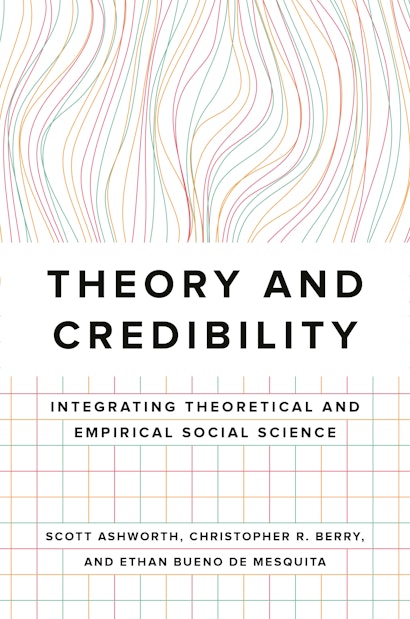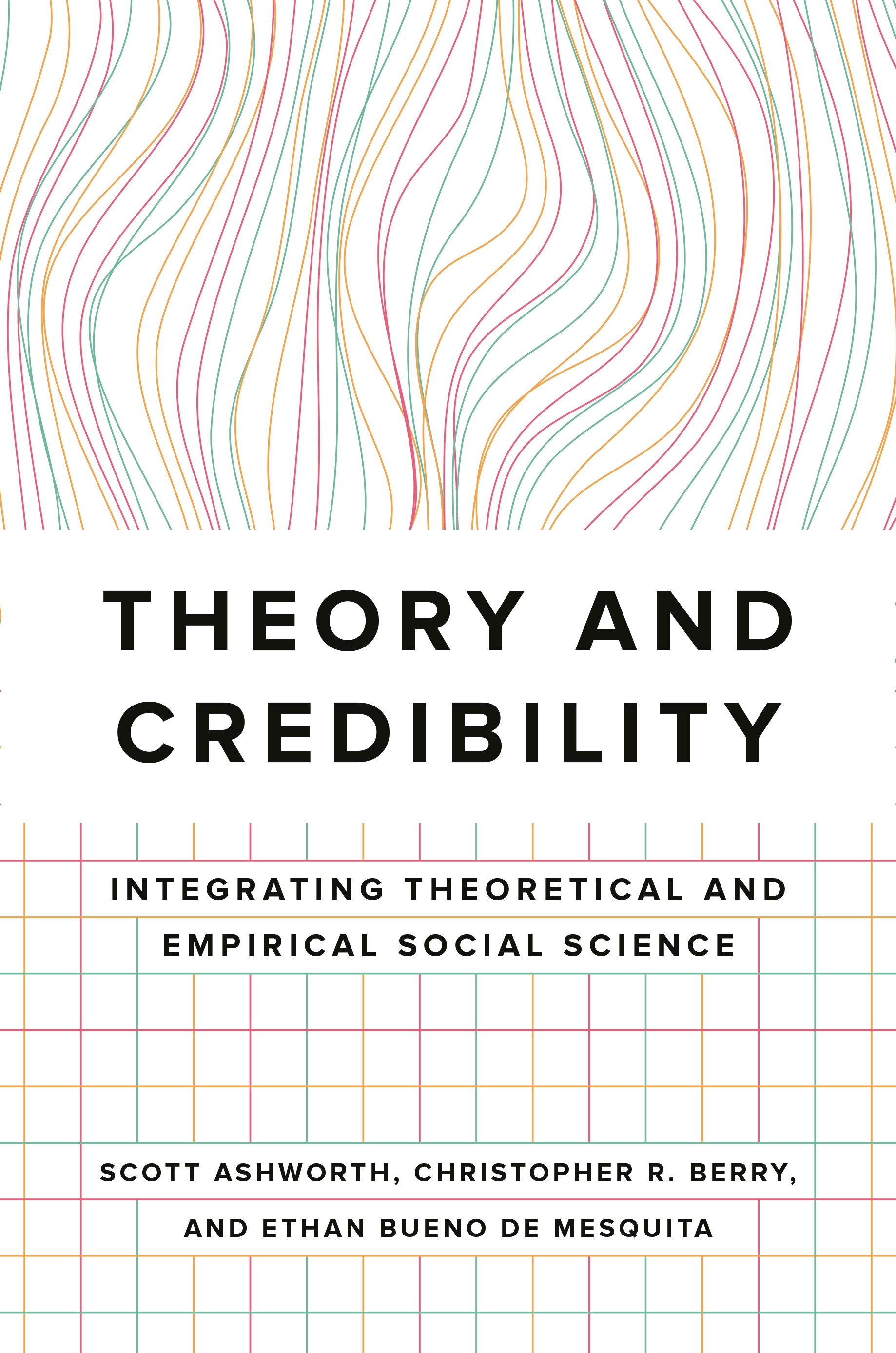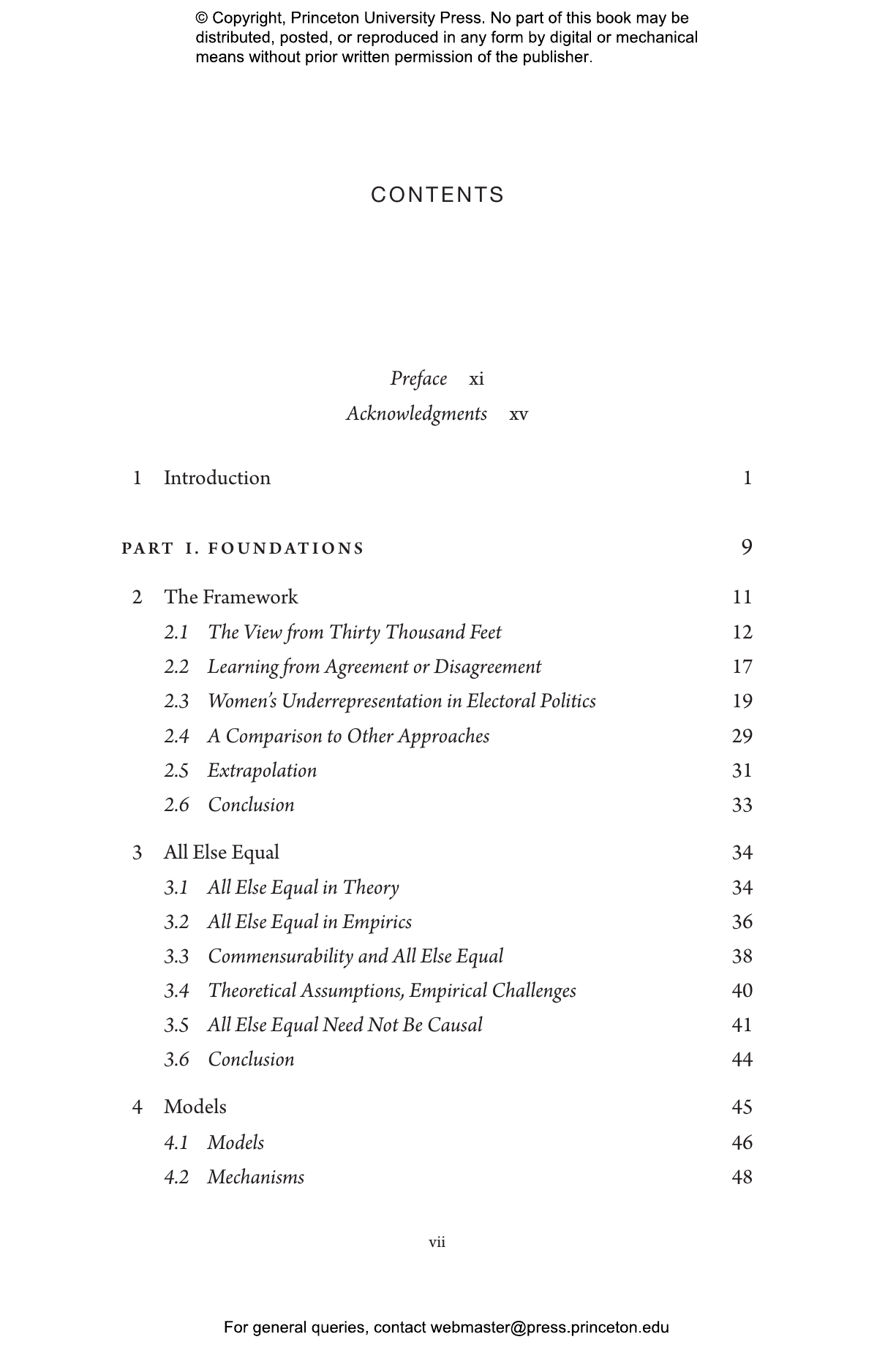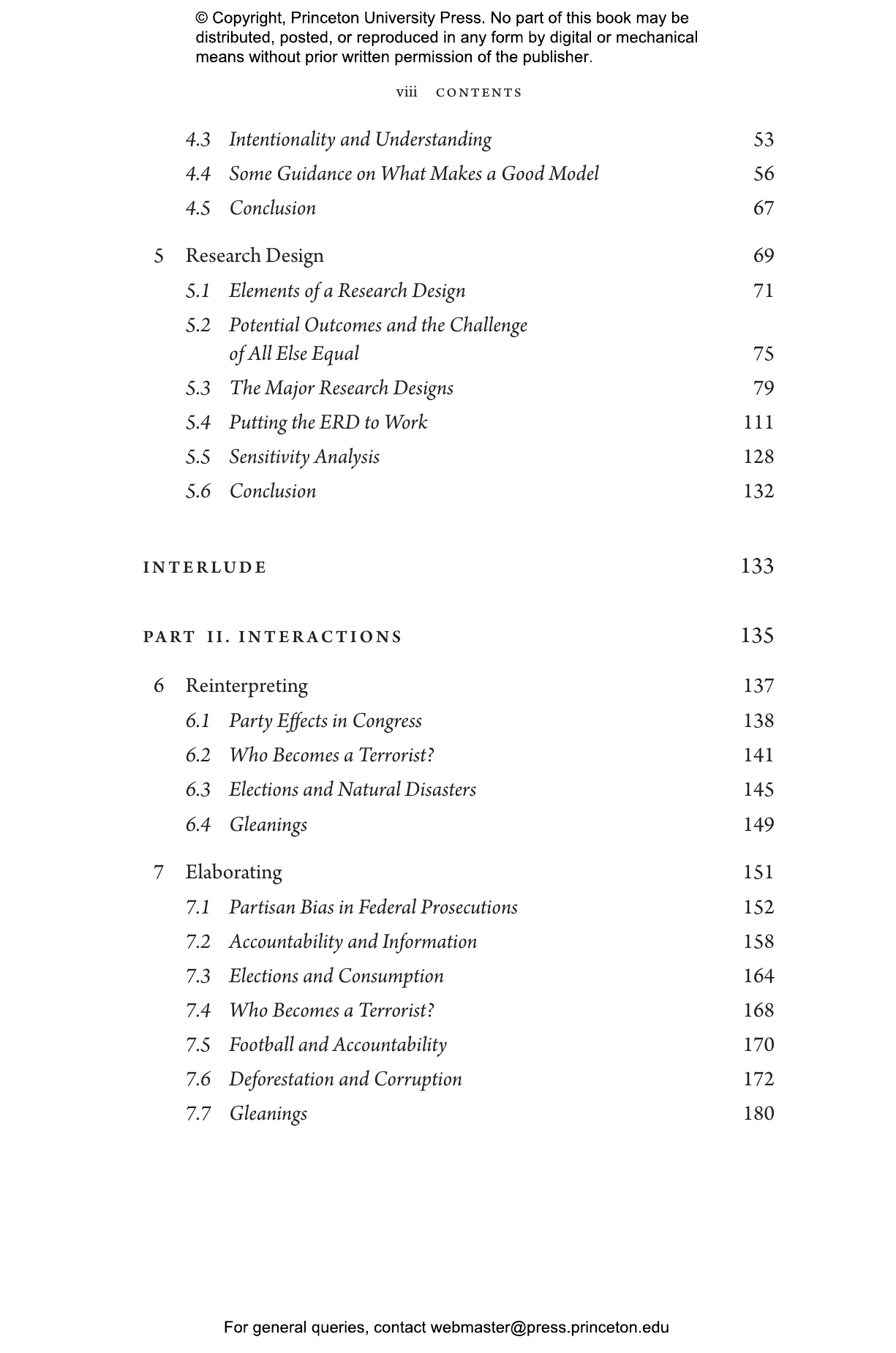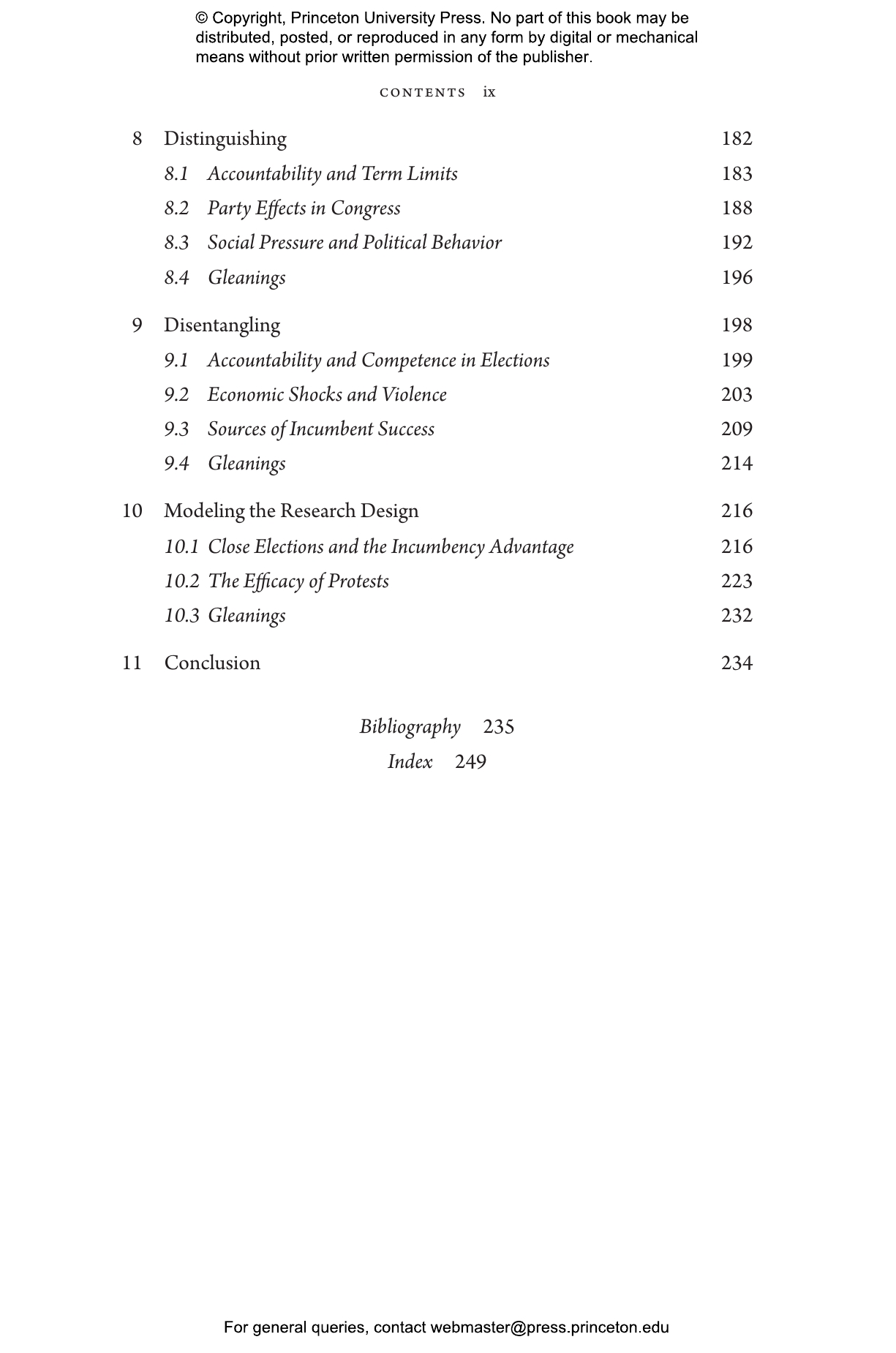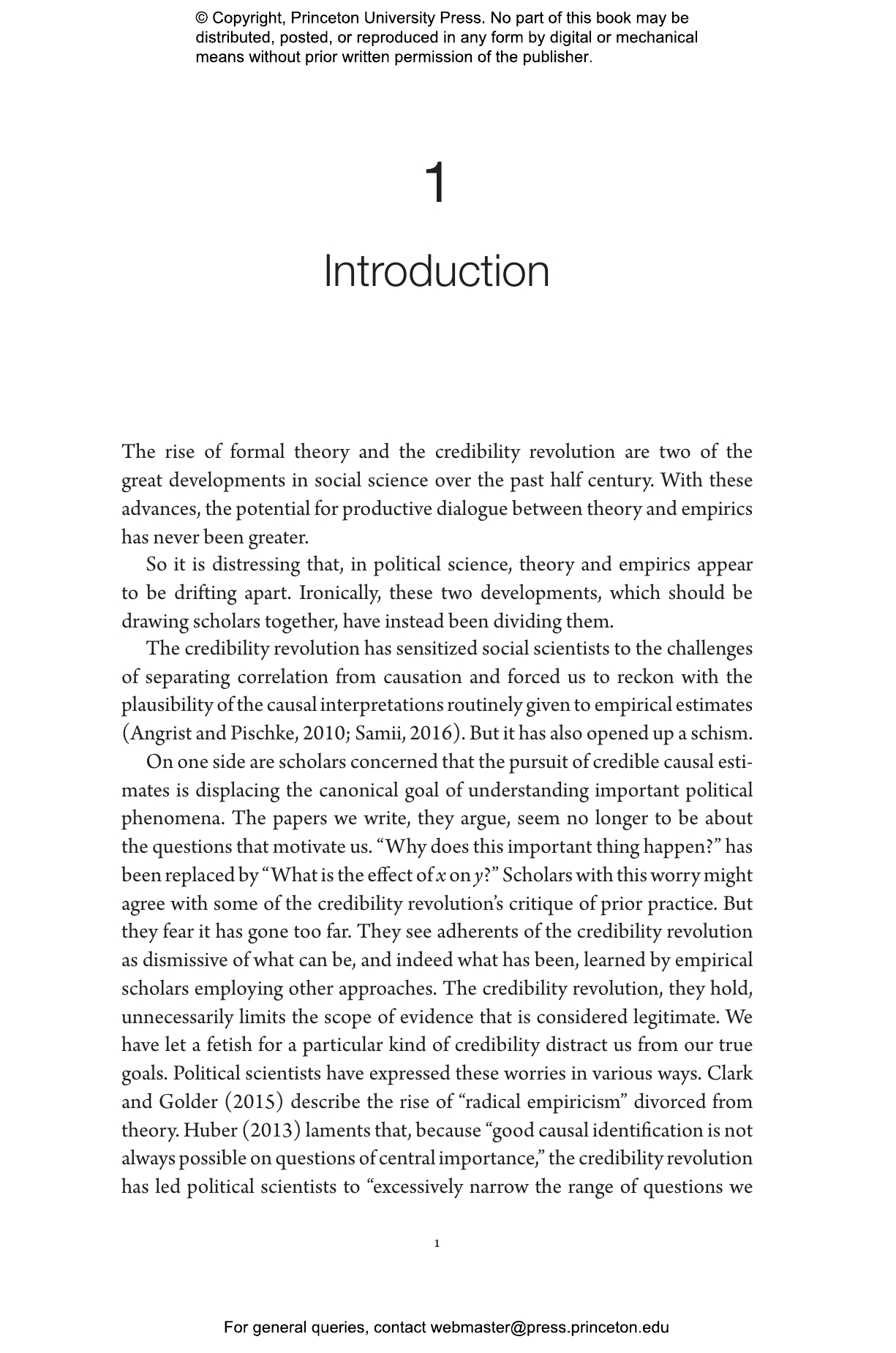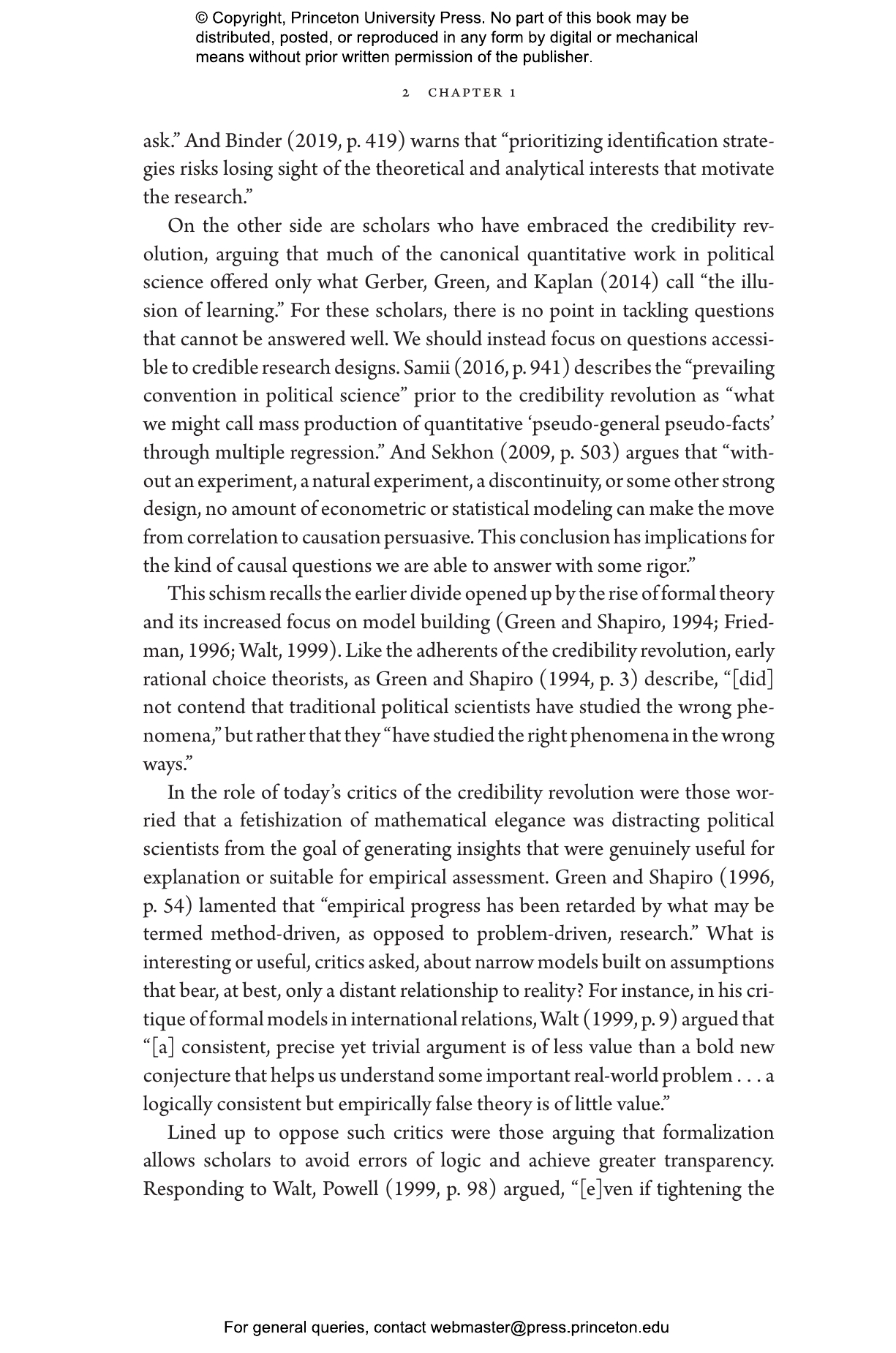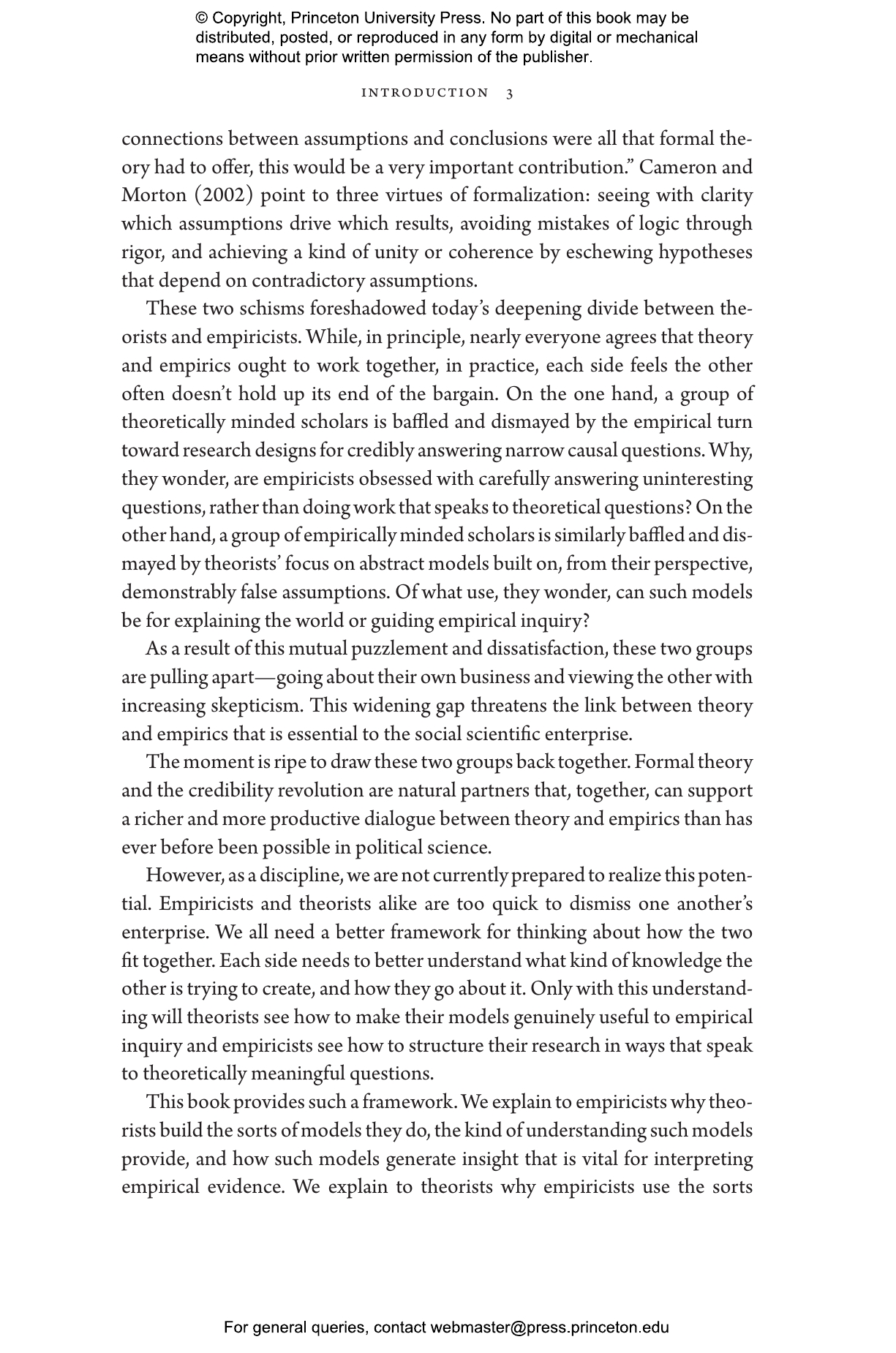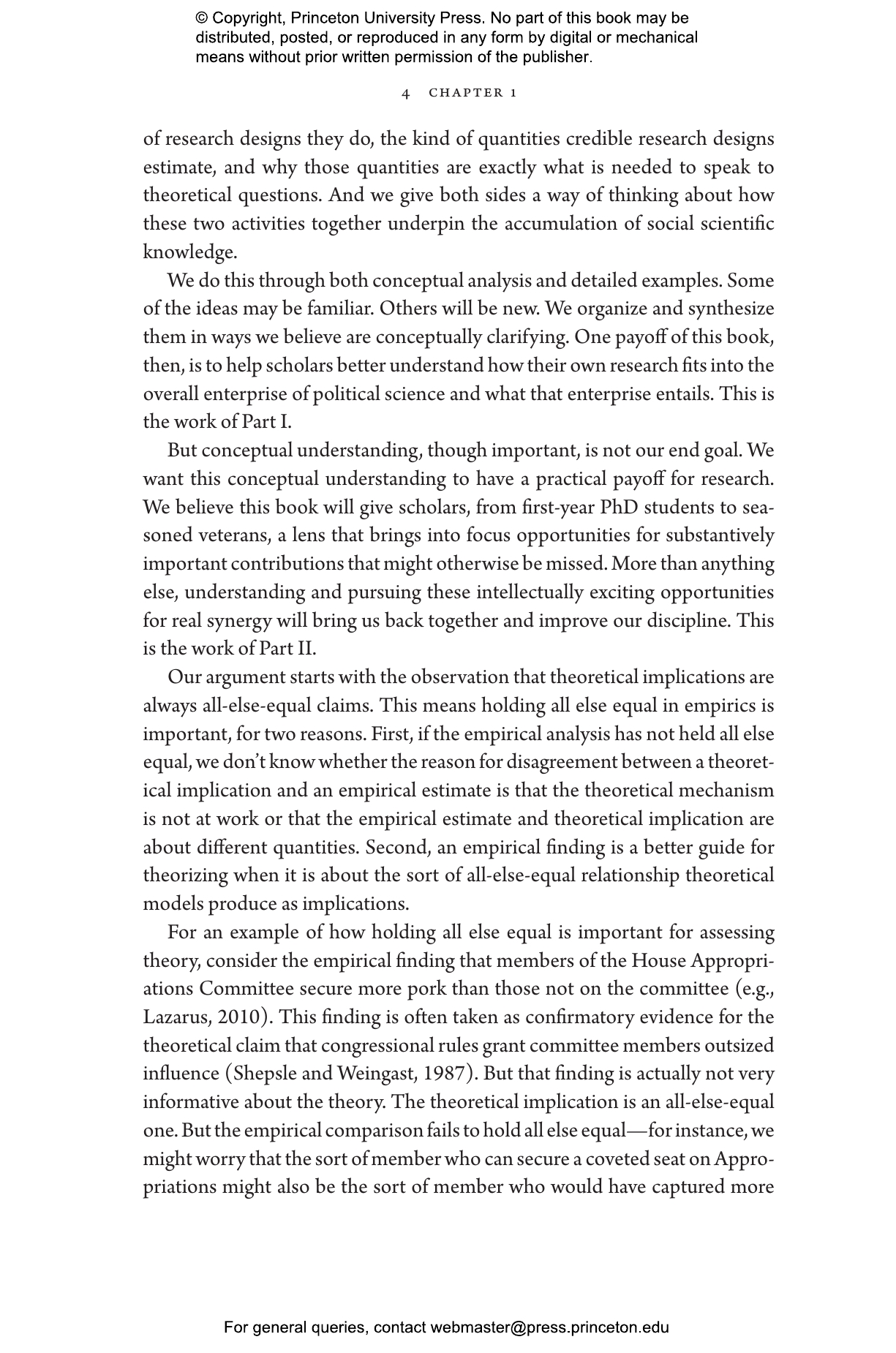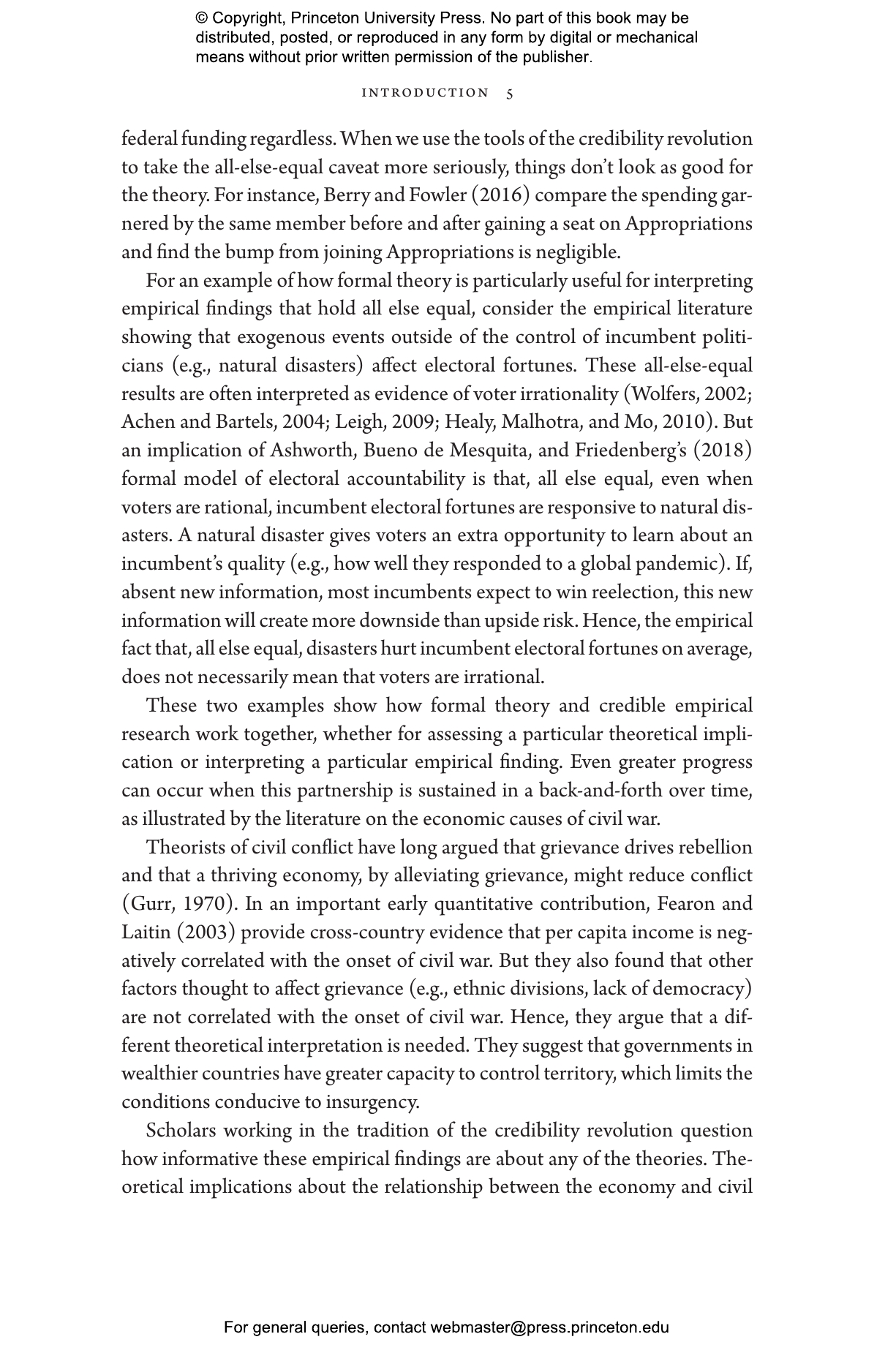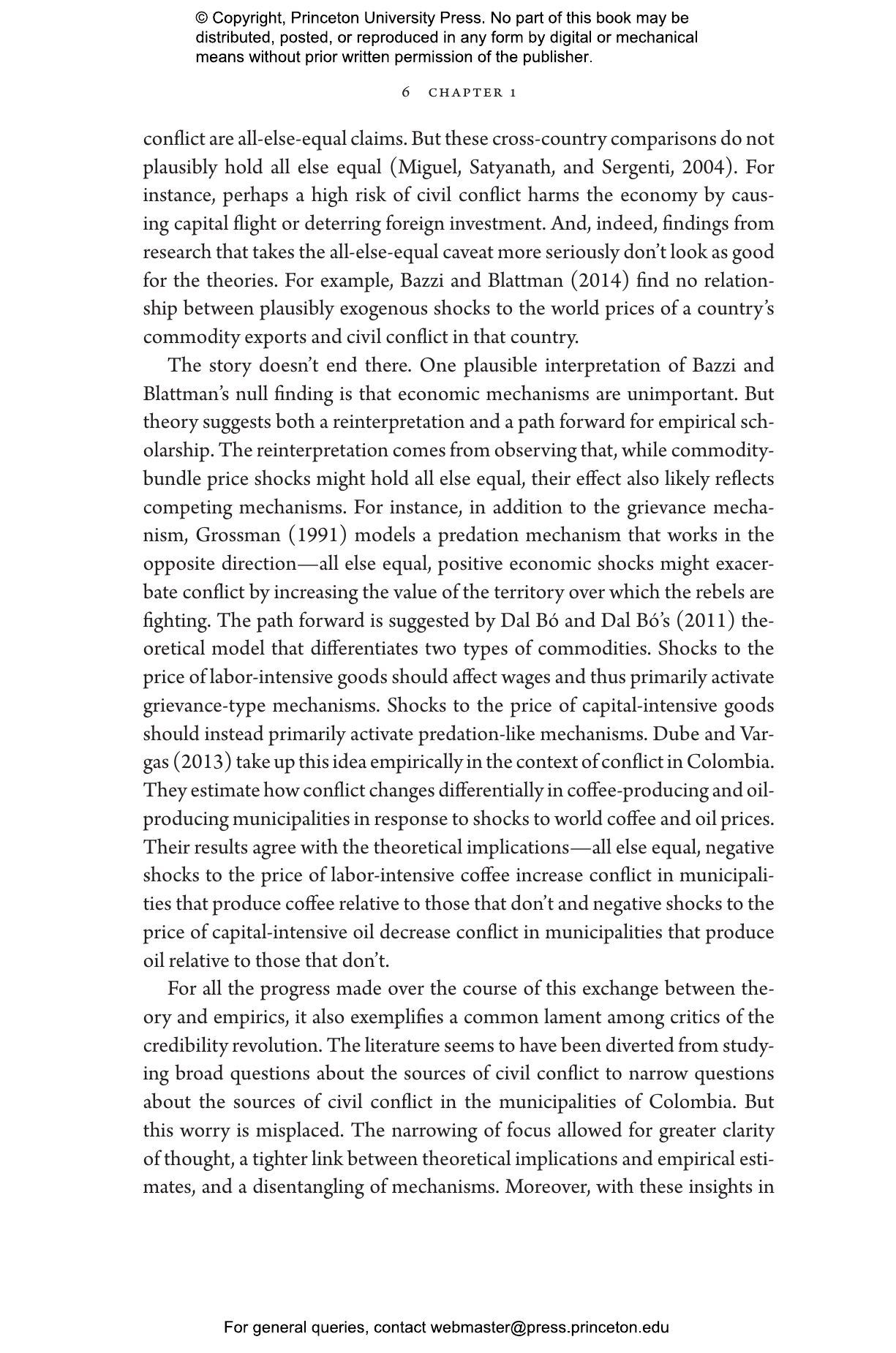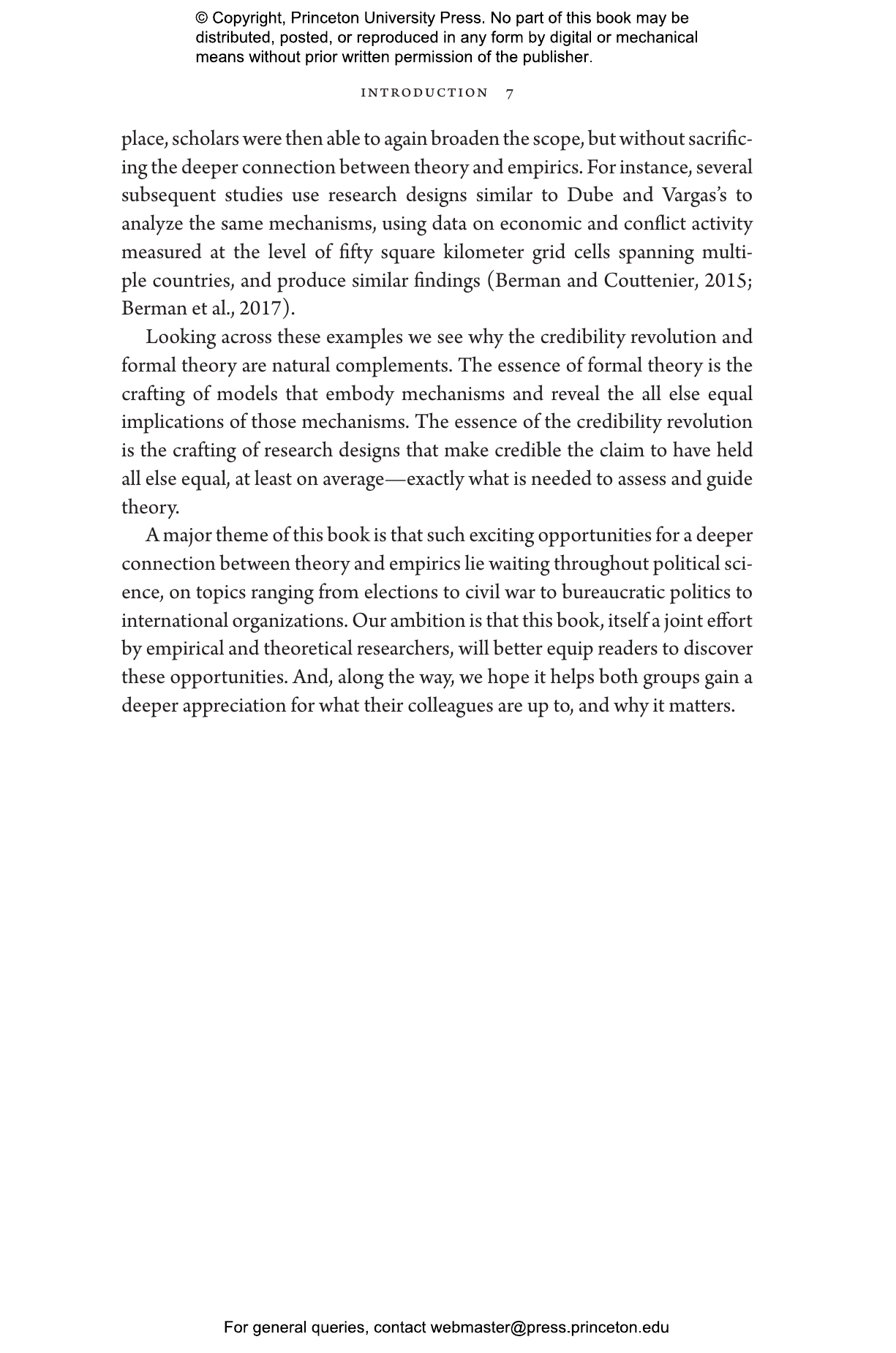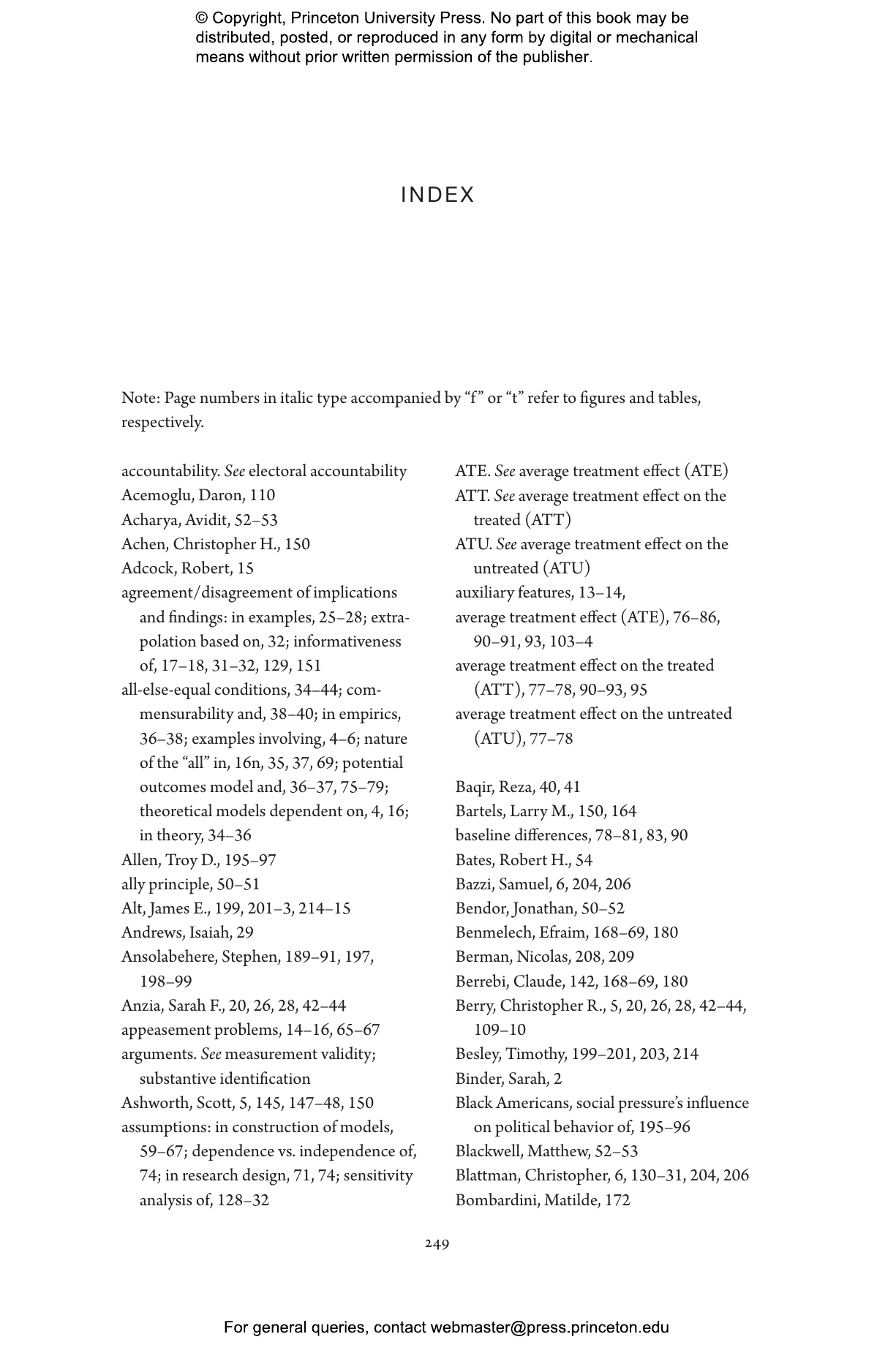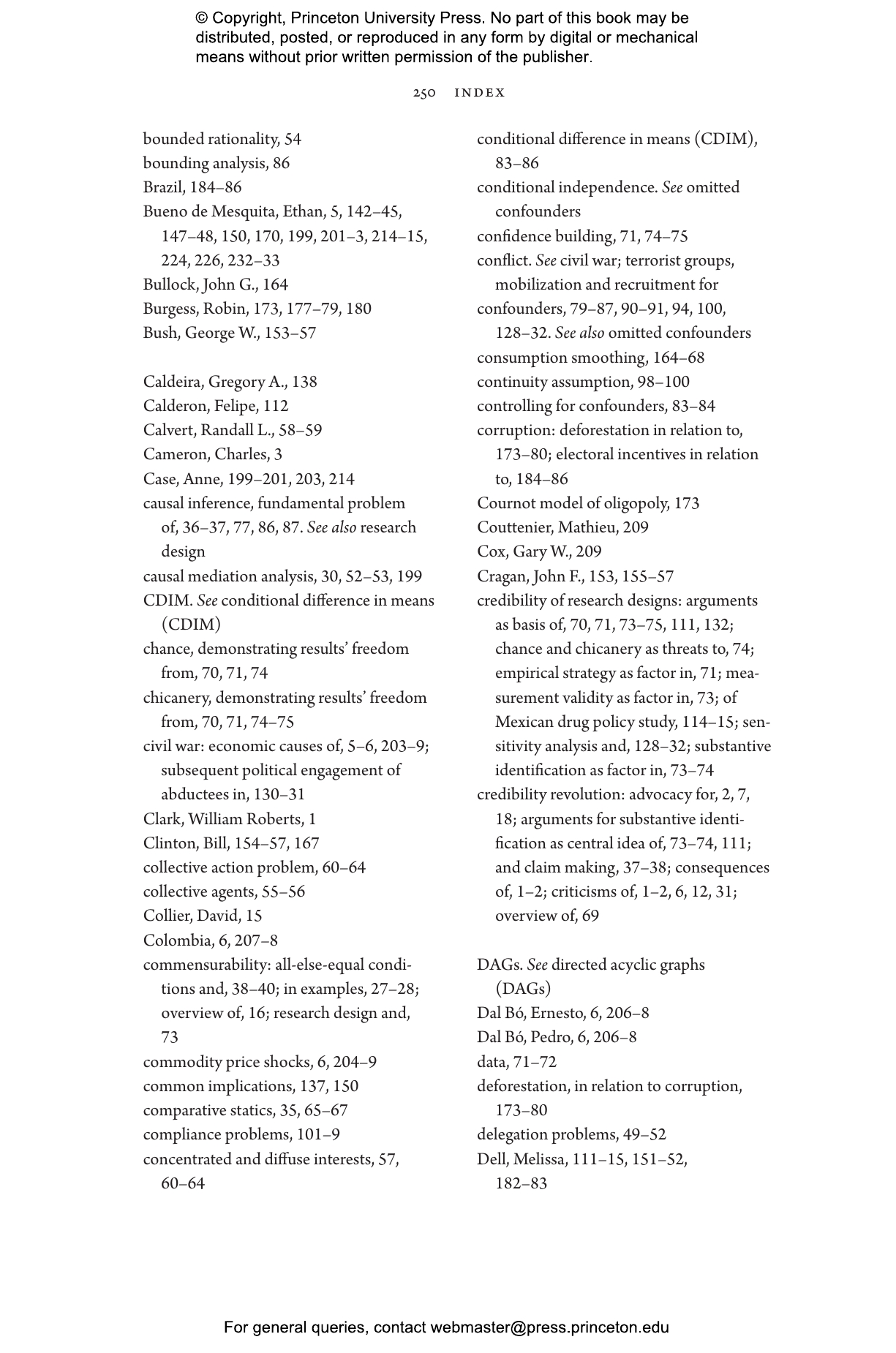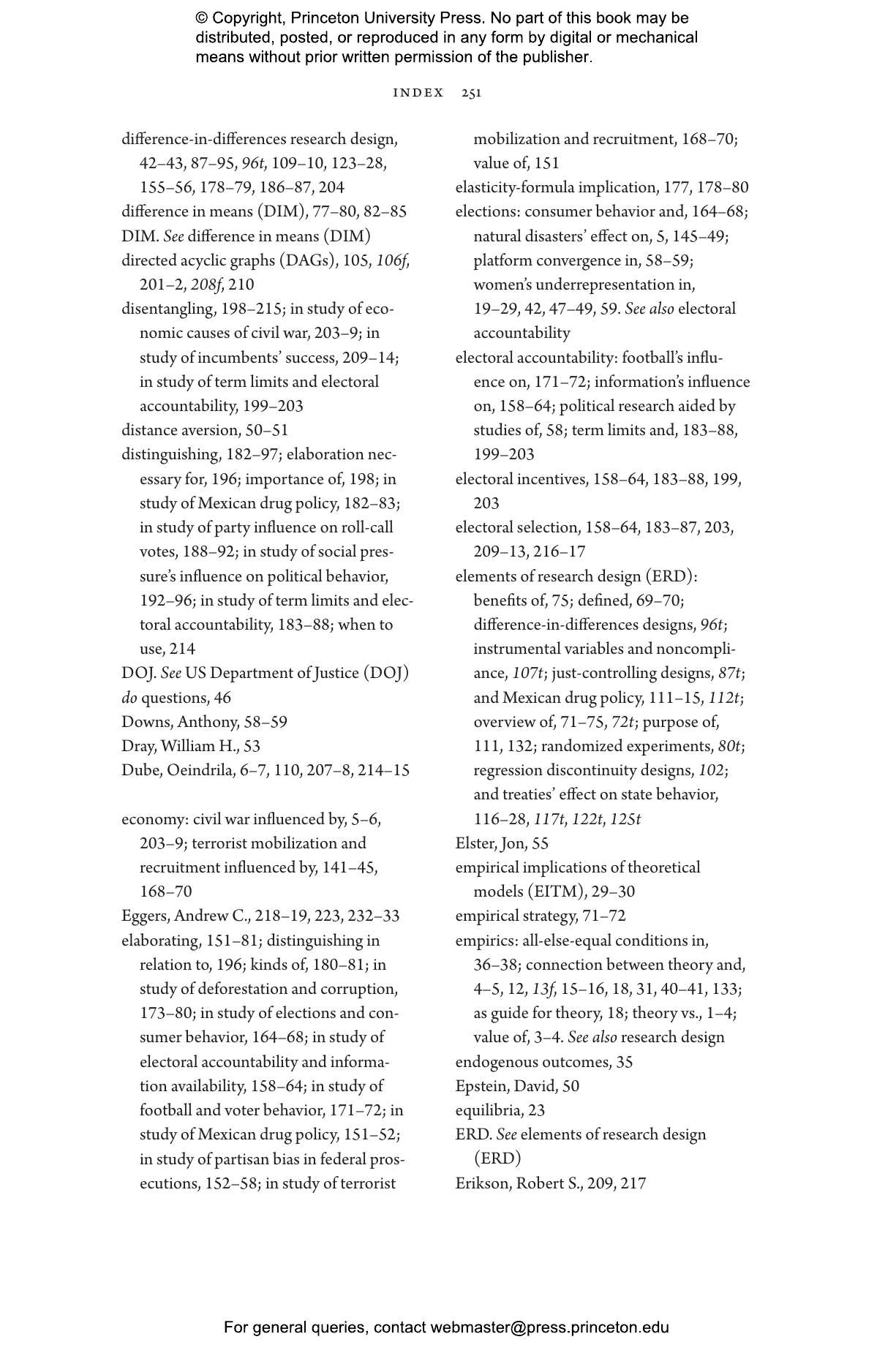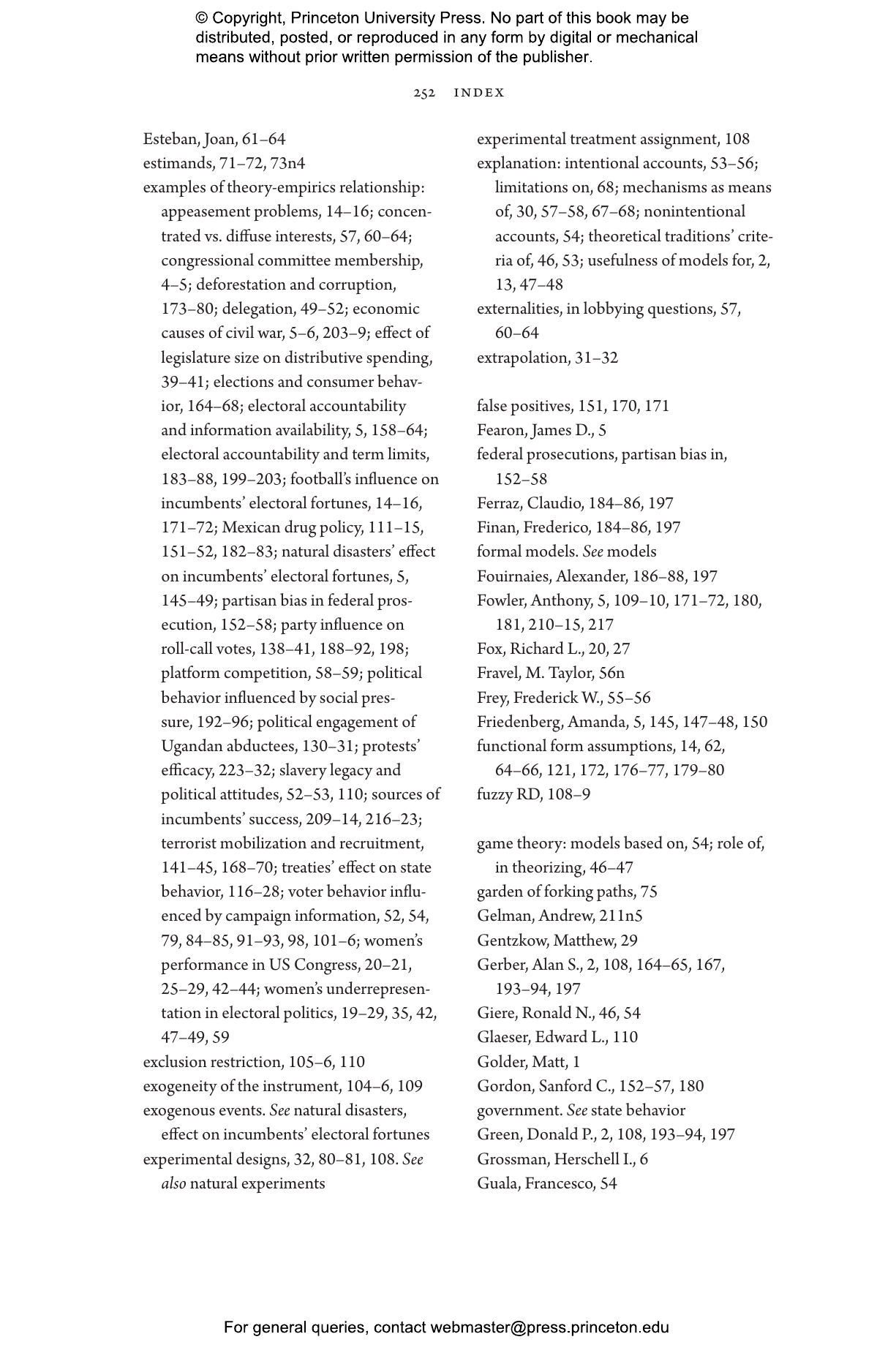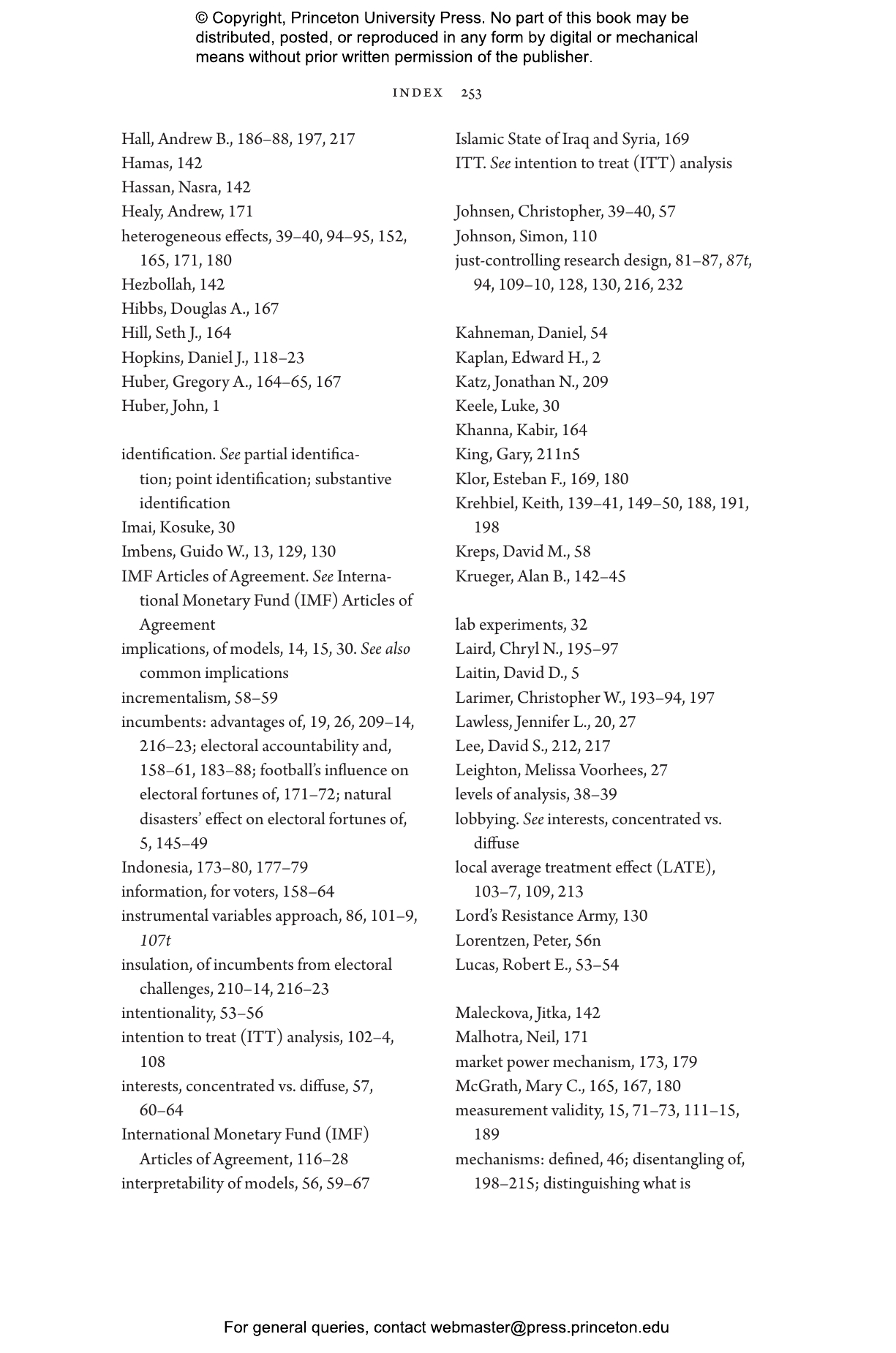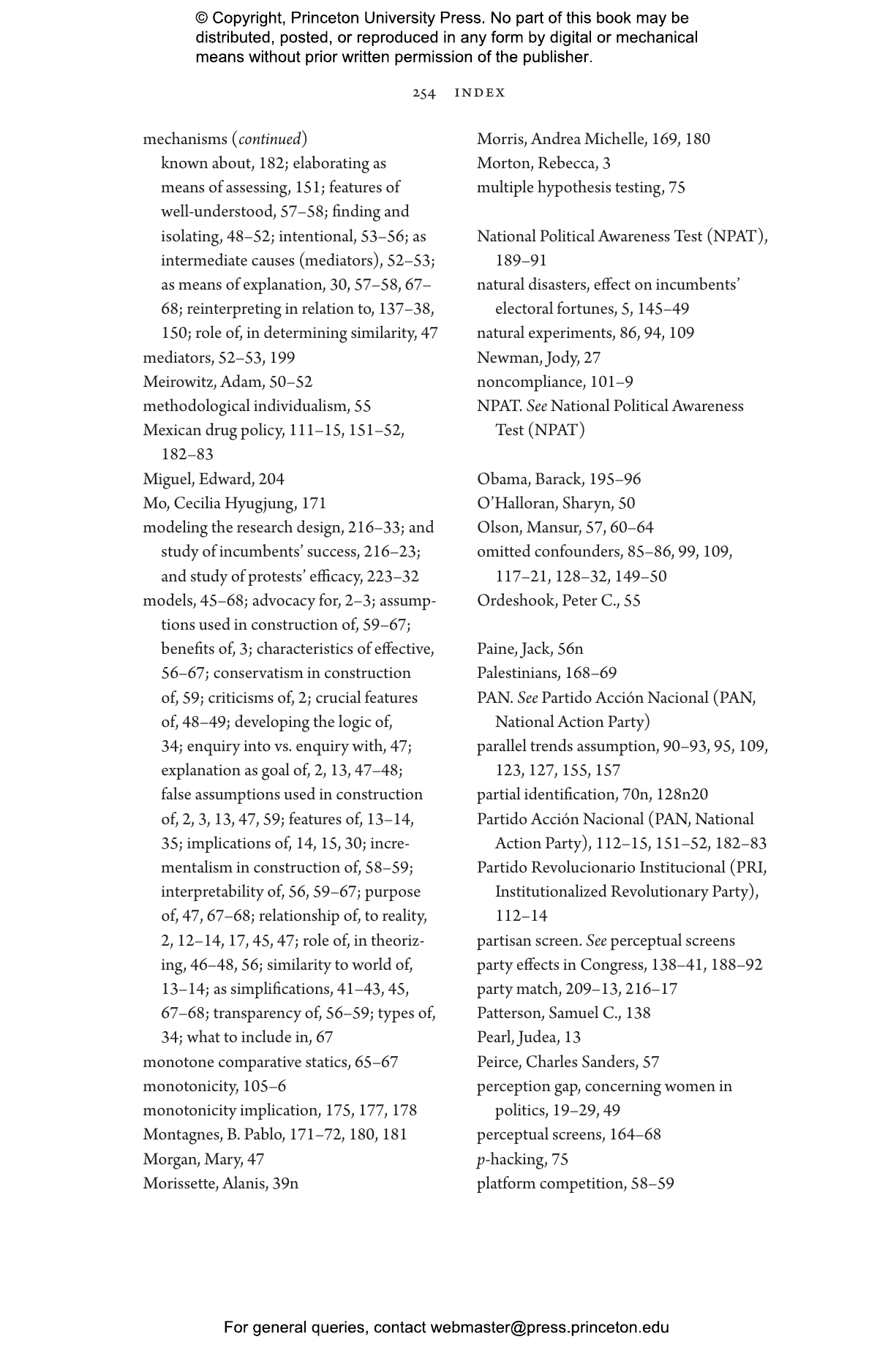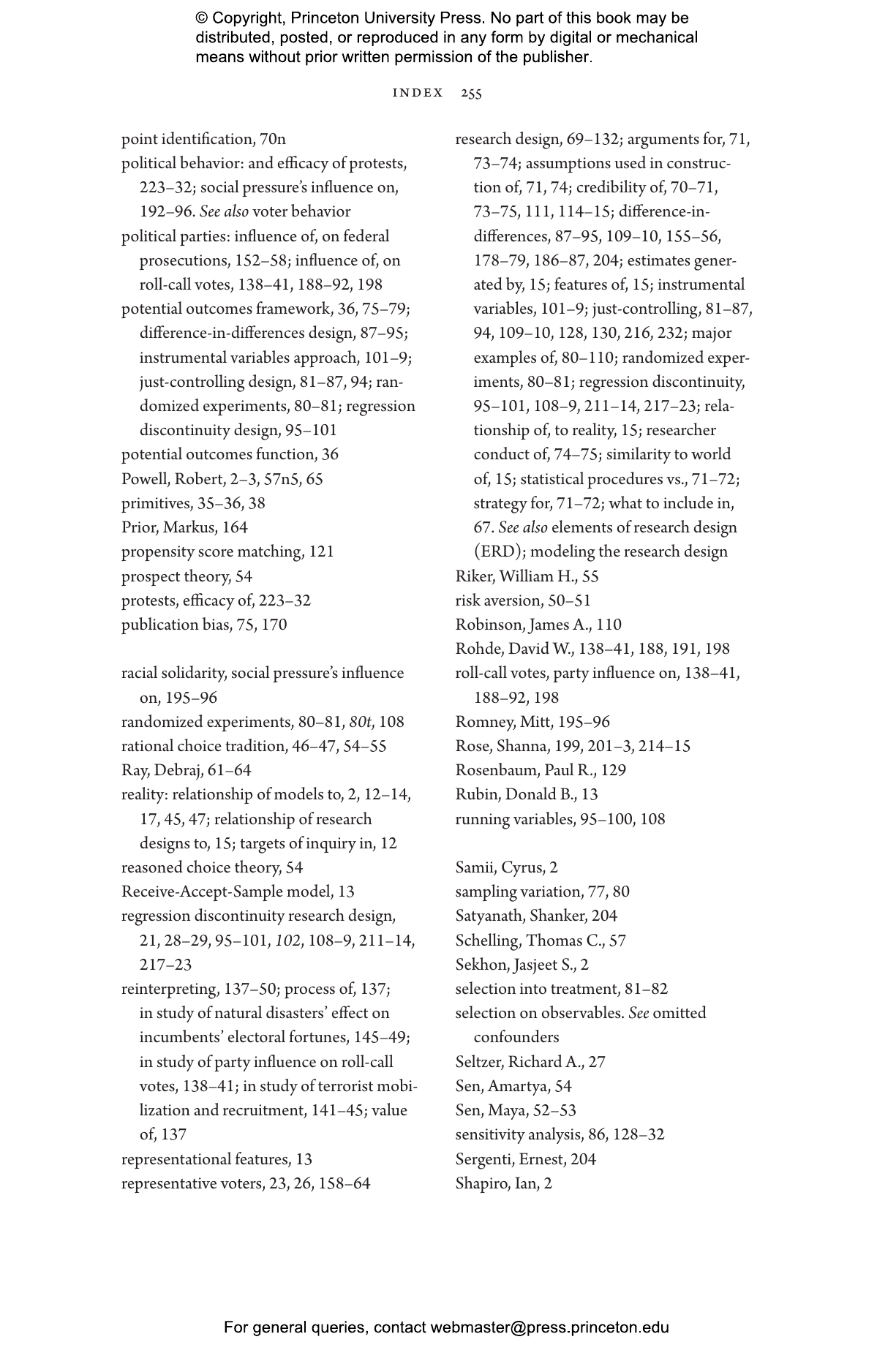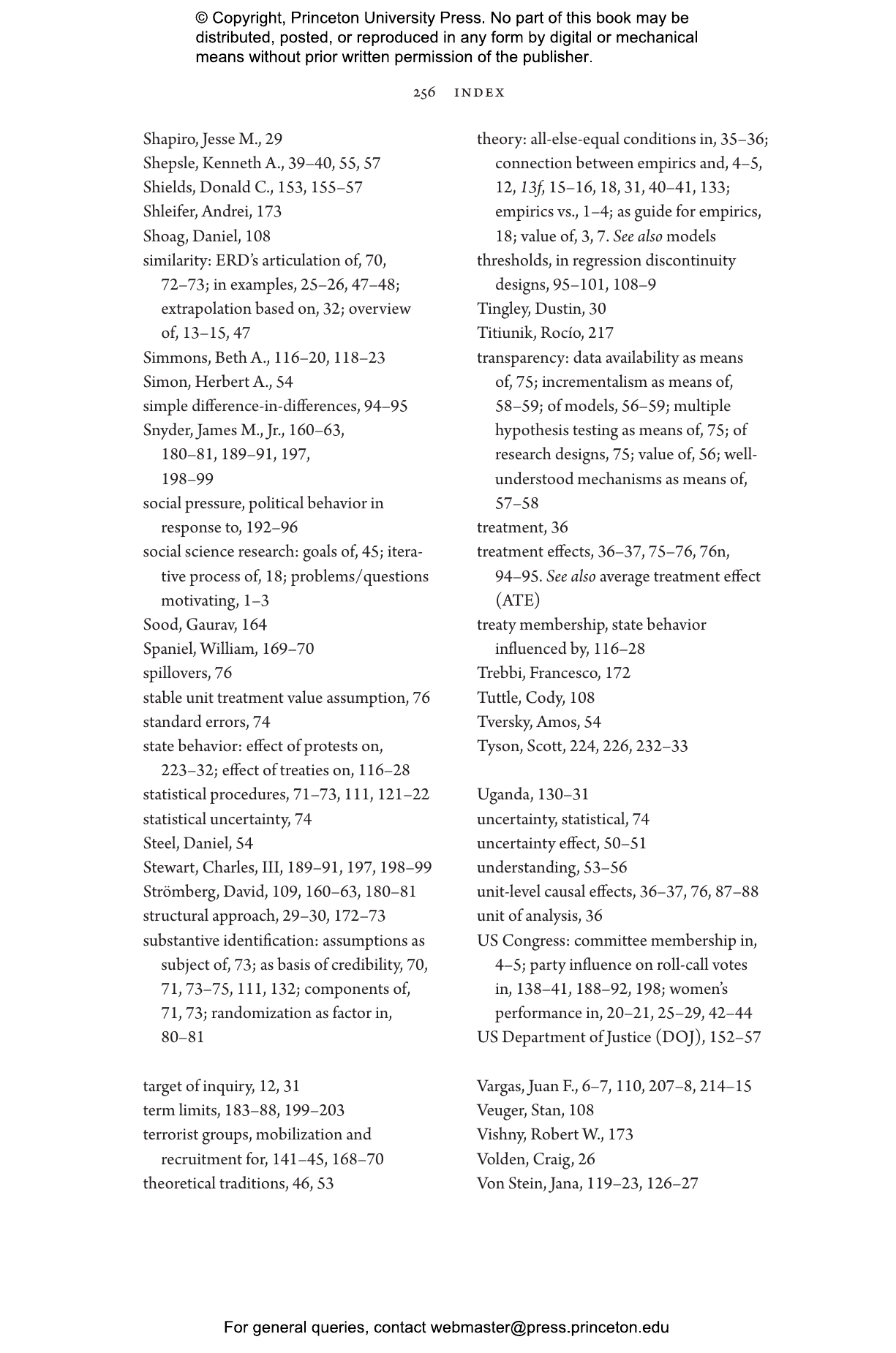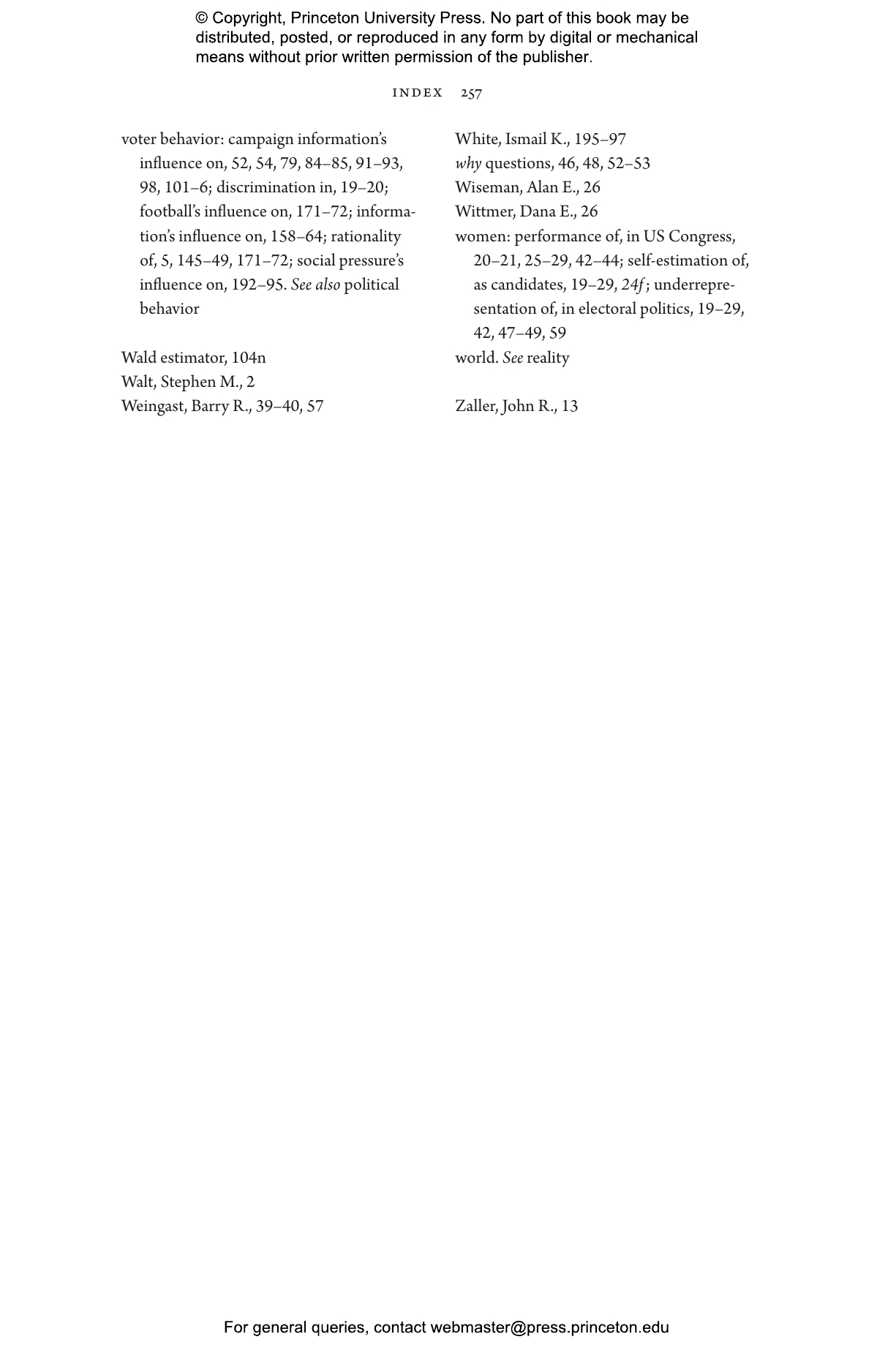The credibility revolution, with its emphasis on empirical methods for causal inference, has led to concerns among scholars that the canonical questions about politics and society are being neglected because they are no longer deemed answerable. Theory and Credibility stakes out an opposing view—presenting a new vision of how, working together, the credibility revolution and formal theory can advance social scientific inquiry.
This authoritative book covers the conceptual foundations and practicalities of both model building and research design, providing a new framework to link theory and empirics. Drawing on diverse examples from political science, it presents a typology of the rich set of interactions that are possible between theory and empirics. This typology opens up new ways for scholars to make progress on substantive questions, and enables researchers from disparate traditions to gain a deeper appreciation for each other’s work and why it matters.
Theory and Credibility shows theorists how to create models that are genuinely useful to empirical inquiry, and helps empiricists better understand how to structure their research in ways that speak to theoretically meaningful questions.
Scott Ashworth is professor at the University of Chicago's Harris School of Public Policy. Twitter @soashworth Christopher R. Berry is the William J. and Alicia Townsend Friedman Professor at Chicago's Harris School of Public Policy. He is the author of Imperfect Union. Ethan Bueno de Mesquita is the Sydney Stein Professor and deputy dean at Chicago's Harris School of Public Policy. He is the author of Political Economy for Public Policy (Princeton). Twitter @ethanbdm
- Preface
- Acknowledgments
- 1 Introduction
- PART I. FOUNDATIONS
- 2 The Framework
- 2.1 The View from Thirty Thousand Feet
- 2.2 Learning from Agreement or Disagreement
- 2.3 Women’s Underrepresentation in Electoral Politics
- 2.4 A Comparison to Other Approaches
- 2.5 Extrapolation
- 2.6 Conclusion
- 3 All Else Equal
- 3.1 All Else Equal in Theory
- 3.2 All Else Equal in Empirics
- 3.3 Commensurability and All Else Equal
- 3.4 Theoretical Assumptions, Empirical Challenges
- 3.5 All Else Equal Need Not Be Causal
- 3.6 Conclusion
- 4 Models
- 4.1 Models
- 4.2 Mechanisms
- 4.3 Intentionality and Understanding
- 4.4 Some Guidance on What Makes a Good Model
- 4.5 Conclusion
- 5 Research Design
- 5.1 Elements of a Research Design
- 5.2 Potential Outcomes and the Challenge of All Else Equal
- 5.3 The Major Research Designs
- 5.4 Putting the ERD to Work
- 5.5 Sensitivity Analysis
- 5.6 Conclusion
- INTERLUDE
- PART II. INTERACTIONS
- 6 Reinterpreting
- 6.1 Party Effects in Congress
- 6.2 Who Becomes a Terrorist?
- 6.3 Elections and Natural Disasters
- 6.4 Gleanings
- 7 Elaborating
- 7.1 Partisan Bias in Federal Prosecutions
- 7.2 Accountability and Information
- 7.3 Elections and Consumption
- 7.4 Who Becomes a Terrorist?
- 7.5 Football and Accountability
- 7.6 Deforestation and Corruption
- 7.7 Gleanings
- 8 Distinguishing
- 8.1 Accountability and Term Limits
- 8.2 Party Effects in Congress
- 8.3 Social Pressure and Political Behavior
- 8.4 Gleanings
- 9 Disentangling
- 9.1 Accountability and Competence in Elections
- 9.2 Economic Shocks and Violence
- 9.3 Sources of Incumbent Success
- 9.4 Gleanings
- 10 Modeling the Research Design
- 10.1 Close Elections and the Incumbency Advantage
- 10.2 The Efficacy of Protests
- 10.3 Gleanings
- 11 Conclusion
- Bibliography
- Index
“As the old concern goes, ‘Data, data everywhere, and not a thought to think.’ Here is a book not just for how to use data, but for how to think. Required reading for all quantitative researchers who want their studies to provide real insight.”—Andrew B. Hall, Stanford University
"Theory and Credibility bridges the theorist-empiricist divide while offering a blueprint for thinking about how to collaboratively learn more. This is a book that can move social science—particularly political science—in a more productive direction."—Corrine M. McConnaughy, author of The Woman Suffrage Movement in America
"Impressive and important. Theory and Credibility highlights the crucial role of theory in interpreting empirical work in political science."—Nolan McCarty, coauthor of Political Bubbles: Financial Crises and the Failure of American Democracy
"An original approach that offers a rational foundation for marrying two trends in social science: the trend toward formality in theoretical work and the focus on causal identification in empirical work."—Cyrus Samii, New York University
